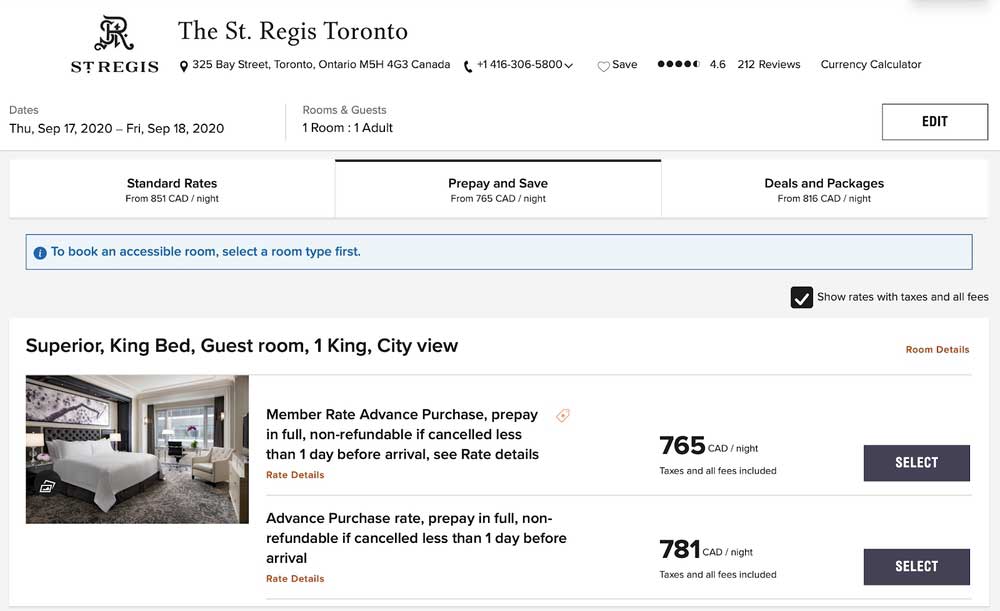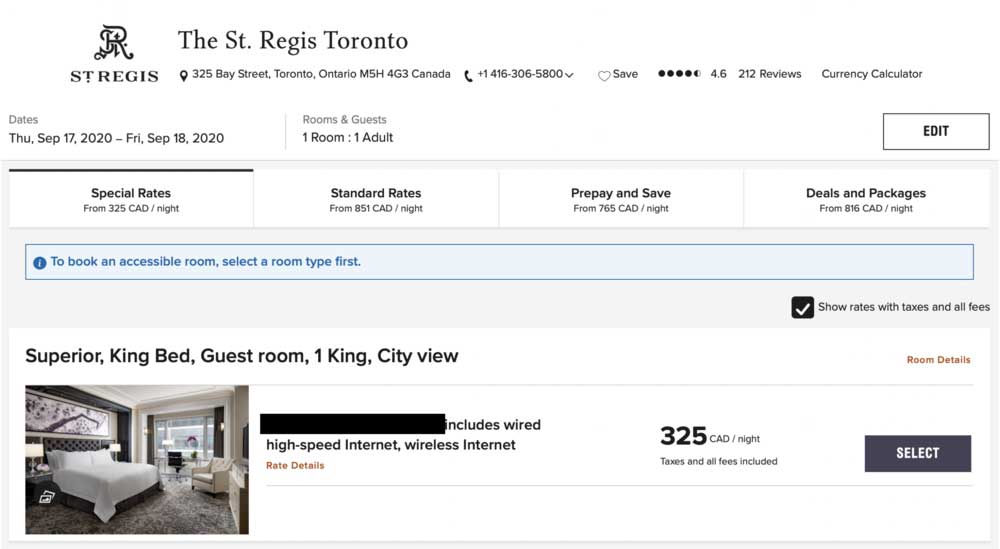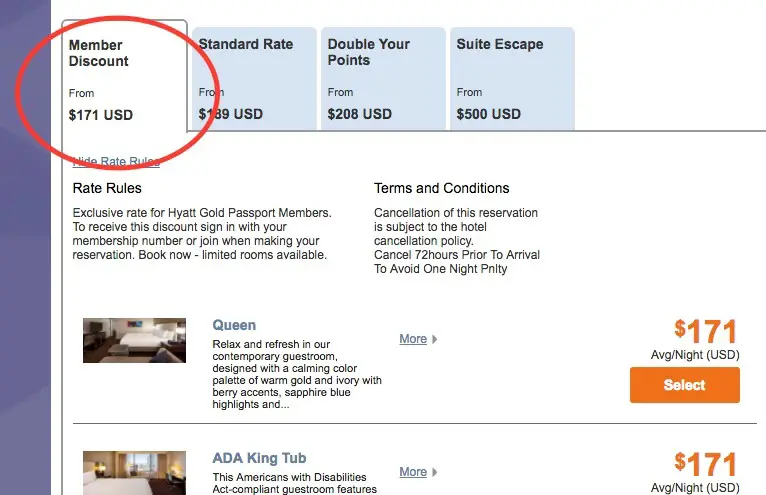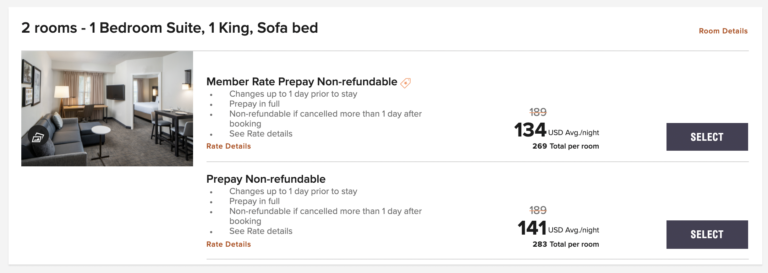The hotel industry is a highly competitive market where supply can often outweigh demand, and the fact that many hotels have been experiencing low occupancy rates in the last two years due to COVID-19, which results in opportunities for travelers to get the cheapest hotel deals, as long as you have the right tools to find those opportunities.
This article will show you the most feasible hotel-saving tips, followed by a step-by-step list of actions you can take to book a hotel while planning your next trip. How much money you can save depends on how much effort you put into the hotel booking process. There’s no mysterious process to crack, all it takes is the right knowledge and a little digging.
Using corporate discount rates
Hotel corporate rates (or Hotel negotiated rates) are discounted prices agreed between an organization and a hotel for a set period. The organization gets a better deal on their hotel rates and, in return, the hotel receives a higher volume of bookings.
Corporate rates provide the discount necessary for employees to travel effectively for work. As you can imagine the larger the organization’s travel budget typically leads to a bigger discount.
For example, a major corporation like IBM may negotiate corporate rates with a hotel chain like Marriott to obtain a steeply discounted rate that will be used for corporate travel for its employees.
Here are the public rates at the St. Regis Toronto from Thursday, September 17 to Friday, September 18.

And here is the same room on corporate rates:

As you can tell, this represents a significant discount of $440, or 58% on the lowest publicly available rate. Keep in mind corporate rates typically also offer flexible cancellation policies (business travelers often change their plans on a last-minute basis, after all), so imagine the possibilities if you could stretch your hotel budget 50–75% farther across every stay while benefiting from flexible cancellation policies throughout.
Ok, now the question is, who is eligible to use the corporate discount rate? I am not an employee of a large company, can I take advantage of the corporate discount rate?
If you are interested, keep exploring: How To Get Hotel Corporate Rates Via Corporate Codes?
Use a travel rewards credit card
One of the easiest ways to save hundreds on travel is by signing up for a travel rewards credit card. With so many card issuers competing for your business, there are massive point bonuses to be had simply by signing up for the card and hitting the minimum spend requirement, simply by using the card for your everyday purchases.
You would book the hotel anyway, so why not book with a credit card that pumps 1.5% cashback (or equivalent points) straight into your account. Use a credit card with travel-specific rewards and no foreign transaction fees.
For example, A hotel in San Diego, California costs you US$ 400 for 5 nights, you can automatically subtract US$ 6. It might not sound much but those small sums add up each time you book a hotel. After 10 hotels you have US$ 60 in your account that you wouldn’t have had otherwise.
They are the fine margins helping you get the cheapest possible hotel bookings. And how much effort do you have to make? None. Use your credit card to buy anything from gas to groceries and online purchases. Build your points/cash back total and eventually use the travel rewards card cash/points accrued for booking flights, trains, hotels, and so on. Plus, you’ll incur no foreign transaction fees on purchases, which is the major draw of the card – the cashback is just a bonus. Travel rewards credit cards are a no-brainer for regular travelers.
Sign up for a hotel’s loyalty programs
Loyalty rates (or member rates) are what big hotel chains offer guests who join their rewards programs and book rooms directly through the hotels instead of third-party sites. Hotels claim these are the lowest available rates for their rooms. We’ve found that it’s more complicated than that. But once you find an appealing rate at a third-party site, it’s still worth checking the hotel’s site to see if there’s a lower loyalty rate available for joining the rewards program. It won’t cost you anything, so sign up!

And there’s another reason to join every free loyalty program you encounter: you can earn points toward room upgrades, hotel perks, and, perhaps most enticing, free nights. It’s pretty easy to get the latter. Hotel rewards programs grant free nights starting at 5,000 or 7,500 points, depending on the chain—and you earn up to 10 points for every dollar you spend at their properties.
This is the most simple form of booking the cheapest hotels every time you travel. The rewards you receive on hotel bookings far outweigh the odd promotional email clogging up your inbox.
Book in advance with a Non-refundable rate
Conversely, if you can guarantee your dates, booking in advance with a non-refundable caveat can save you a lot of money.
For example, here are the prices for the Residence Inn in Cape Canaveral for a weekend stay at the end of the month. The flexible member rate is $359 for the two-night stay.

The prepay Non-refundable rate is much lower, only costing $269 for the same room.

That’s a $45 difference per night or $90 for the stay. You have to decide if you’re willing to risk losing $269 if you need to cancel to save $90.
We always book non-refundable rooms when we are certain of the dates. There’s a small risk factor in case of any unplanned issues but the low risk is worth it for the cost difference. Big savings on hotels often comes down to risk vs reward.
Check prices directly with hotels
It’s useful to begin your hotel search with the accommodation-focused aggregator site of your choice (such as Hotels.com, Booking.com). These sites can give you a general idea of what your hotel options are in a city or even a specific neighborhood, which is especially useful if you’ve never been there before.
While comparison sites can offer great deals, don’t hesitate to call the hotel’s front desk to see if they can offer a better deal, or at least match the lower price. Instead of calling the 800 reservation numbers, call the hotel directly. The people who work at that specific hotel are far more likely to be able to arrange things like a discount or a room upgrade than people at a call center.
If you stay at a hotel regularly, keeping a friendly relationship with it and booking directly can also increase your perks.
Look for Last-Minute Deals
Last-minute hotel bookings are a gamble, sometimes they pay off and other times they don’t. Hotels don’t want empty rooms and punters want the cheapest last-minute hotel rooms available – so this is a great tool for those who prefer to travel with maximum flexibility. Last-minute travel deals can be the key to cutting costs no matter where you’re headed.
It pays off if you travel out of season to a big city such as New York or Los Angeles because they have hundreds of hotels to fill. It doesn’t pay off if you need a hotel in a small town / rural area or a big city in peak season.
Hotel Tonight is a hotel booking search engine designed to get the best last-minute deals for travelers. The greater the population or tourist attraction, the better this method works. You will have ultimate flexibility, which is top priority for some travelers, but you will typically have significantly reduced hotel options.
If you are interested, keep exploring: How to Get Last-Minute Hotel Deals?
Book someone’s Non-refundable reservation
Have you ever considered what happens to a hotel room when a guest books a non-refundable stay but can’t make it? That’s right, the guest loses money and a potential hotel room for other visitors to that place is empty.
A new service called Roomer allows you to reserve a hotel room that someone else has booked but can no longer use, and is non-refundable. By offering someone else’s set booking, the original buyer gets some money back, and you get a reduced rate. Win-win for all!
Book longer stays to save
Staying at hotels for more nights will often drive the average cost down on a per-night basis. Because it eliminates your room having to be cleaned and guarantees hotel occupancy, particularly in low / shoulder season.
For example, You’re looking at hotels in Jackson, Wyoming to visit Grand Teton and Yellowstone. One night at a hotel you like in Jackson Hole costs US$ 70, 2 nights costs US$ 130 and 3 nights cost US$ 180. The average nightly price drops each time.
The take-home for this tip is to look at prices for 1 night, 2 nights, 3 nights etc to see what happens with the total cost. Be aware, this will not always be the case and you may have to spend time looking at different hotels to see this tip in action – but it does work and we always look for it.
This is particularly relevant if you’re planning a road trip with a series of 1 night stays as you move from city to city or national park to national park. It could pay to spend more nights in fewer hotels.



